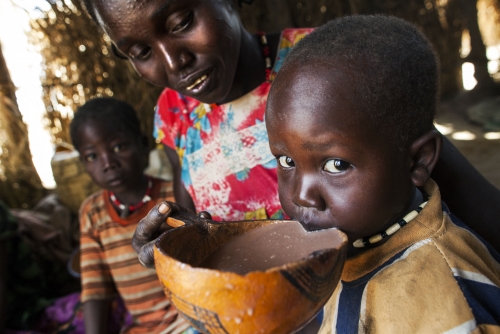Thousands of South Sudan returnees at risk of hunger: UN
AFP | Nairobi
The Daily Tribune – www.newsofbahrain.com
Hundreds of thousands of South Sudanese refugees fleeing Sudan's brutal war are facing "a hunger emergency", the United Nations warned Tuesday, with 90 percent of families going multiple days without meals.
The fighting between forces loyal to Sudan's army chief Abdel Fattah al-Burhan and his former deputy Mohamed Hamdan Daglo has forced nearly 300,000 South Sudanese to return home in the last five months, the UN's World Food Programme (WFP) said.
The crisis was taking a particularly harsh toll on its youngest victims, with 20 percent of children under five malnourished, the WFP said.
"We are seeing families leave one disaster for another as they flee danger in Sudan only to find despair in South Sudan," said Mary-Ellen McGroarty, WFP's country director in Juba.
Since fighting erupted in Sudan in mid-April, at least 7,500 people have lost their lives, according to a conservative estimate from the Armed Conflict Location & Event Data Project.
Multiple truces have failed to stop the violence that has driven tens of thousands over Sudan's borders and raised fears of a humanitarian crisis engulfing the wider region.
WFP said that South Sudanese, who account for almost all the refugees arriving in South Sudan, "are returning to a country already facing unprecedented humanitarian needs".
"Those arriving today are in an even more vulnerable condition than families that fled in the early weeks of the conflict."
Torrential rains pummelling crowded camps and border crossings have worsened living conditions and exacerbated the spread of diseases, WFP said.
One of the world's poorest nations, South Sudan gained independence from Sudan in 2011 but was immediately plunged into a brutal conflict that left the young nation divided and traumatised.
Some 380,000 people died in five years of bloodshed before the civil war formally ended in 2018, with a ceasefire between warring leaders who remain in power today.
The nation of more than 60 ethnic groups and 12 million people continues to grapple with deadly violence, natural disasters and relentless political infighting.
The UN has repeatedly criticised South Sudan's leadership for its role in stoking bloodshed, cracking down on political freedoms and plundering public coffers.
Four out of five South Sudanese live in "absolute poverty" despite large oil reserves, according to World Bank figures for 2018.
Related Posts

